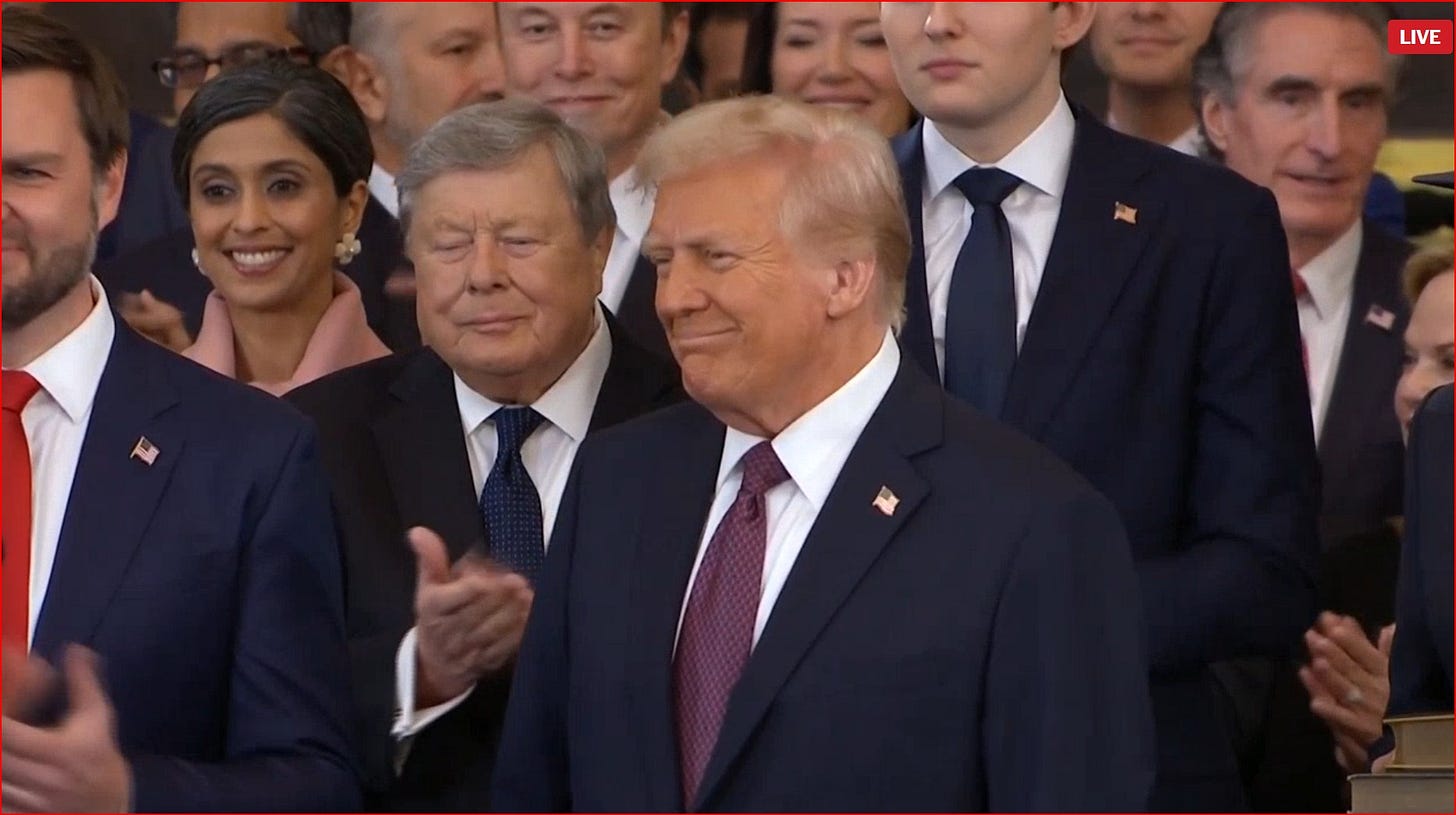Will our 'water protectors' face The Fascist Beast? - We the People (2)
Can we rely on SoCal water agencies to stand up to the Trump administration's attempts to dismantle our democratic republic?
For Americans and other citizens of the world who are determined to counter our nation’s suicidal decline into MAGA fascism, it’s crucial to examine the challenges we face from President Donald Trump and the influence of his governing style on the political leaders managing our water-supply agencies.
History shows that most water board directors struggle to address weighty issues proactively—if at all—until near-disaster strikes. Challenges like, declining water demand and rising water rates juxtaposed with costly large-scale projects, climate catastrophe and fascist threats, prove overwhelming.
For most water agencies, maintaining the status quo is far simpler and more politically advantageous than facing harsh realities and the political turmoil that comes with them—leading directors to adopt and enforce a "go along to get along" approach.
Local water districts favor calm, uneventful meetings over political upheaval. They tend to believe that effective water management should be orderly, predictable, and business-friendly—resembling a local chamber of commerce or Elks Club gathering.
But at the highest levels of the Metropolitan Water District of Southern California (MWD)—the region’s most influential water agency—political maneuvering and behind-the-scenes scheming for raw political power are commonplace. Unfortunately, this culture hinders MWD’s ability to address critical issues affecting local water agencies and the 19 million ratepayers they serve.
Last July, I sought to challenge our would-be water protectors—many of whom are among this newsletter’s 1,400 subscribers—by addressing the looming fascist question directly.
I did so by cross-posting Jonathan Larsen’s Jonathan Larsen’s semi-satirical article on the Supreme Court’s decision in Trump v. United States, where the former president disputed the Department of Justice's authority to prosecute him for conspiracy to commit election fraud and obstruct election proceedings tied to the 2020 presidential election.
The indictment highlights that Donald Trump’s legal attempts, as president, to challenge the results of the 2020 presidential election—where Joe Biden defeated him with 81.2 million votes to 74.2 million and an electoral count of 306 to 202—were “uniformly unsuccessful.”
It further claims that Trump employed “unlawful means of discounting legitimate votes and subverting election results,” orchestrating three conspiracies in the process:
A conspiracy to defraud the United States by using dishonesty, fraud, and deceit to impair, obstruct, and defeat the lawful federal government function by which the results of the presidential election are collected, counted, and certified by the federal government…
A conspiracy to corruptly obstruct and impede the January 6 congressional proceeding at which the collected results of the presidential election are counted and certified (“the certification proceeding”)…
A conspiracy against the right to vote and to have one’s vote counted…
Here’s the DOJ’s description of the “manner and the means” of Trump and his co-conspirators’ criminal actions, from the indictment:
That is, on the pretext of baseless fraud claims, the Defendant pushed officials in certain states to ignore the popular vote; disenfranchise millions of voters; dismiss legitimate electors; and ultimately, cause the ascertainment of and voting by illegitimate electors in favor of the Defendant.
As highlighted in Larsen’s article, the court’s conservative majority ruled in favor of Trump, asserting that the president holds absolute immunity for crimes committed in office related to “core” presidential functions, and “presumptive immunity” for non-core presidential functions.
Since the Supreme Court’s majority did not define core and non-core presidential functions, Larsen argued—though I disagree—those omissions left room for a strong legal appeal to clarify the gaps in its ruling and potentially safeguard against the resurgence of monarchy in American politics.
But Justice Sonia Sotomayor, who wrote the Court’s dissenting opinion, rejected the existence of loopholes as even a partial way out. “Argument by argument, the majority invents immunity through brute force,” she wrote. “If the majority’s sweeping concept of ‘official acts’ has any real limits, the majority is unwilling to reveal them in today’s decision.”
Justice Sotomayor’s argument resonated with me. In my introduction to Larsen’s article, I contended that the Supreme Court’s ruling effectively granted dictatorial powers to any president of the United States.
Aware of Trump’s staunch opposition to environmental protection and his “Drill baby, drill” stance on water-supply management, I argued that, if elected again, Trump would be even more likely to destroy “any hope of continuing toward common sense water management reform for another generation.”
By “common sense” water management, I meant the Metropolitan Water District’s “One Water” program, which prioritized sustainability and was introduced by Adel Hagekhalil as general manager in July 2021. Around the same time, the MWD Board, under Adan Ortega’s leadership, worked tirelessly to remove Hagekhalil and dismantle One Water, ultimately succeeding. More on that to come.
I urged everyone to read Larsen’s article and and share their thoughts on “what water management policy might be like in America--guided by the Supreme Court's ruling granting presidential immunity from prosecution for criminal acts including treason.”
Next: the response.






